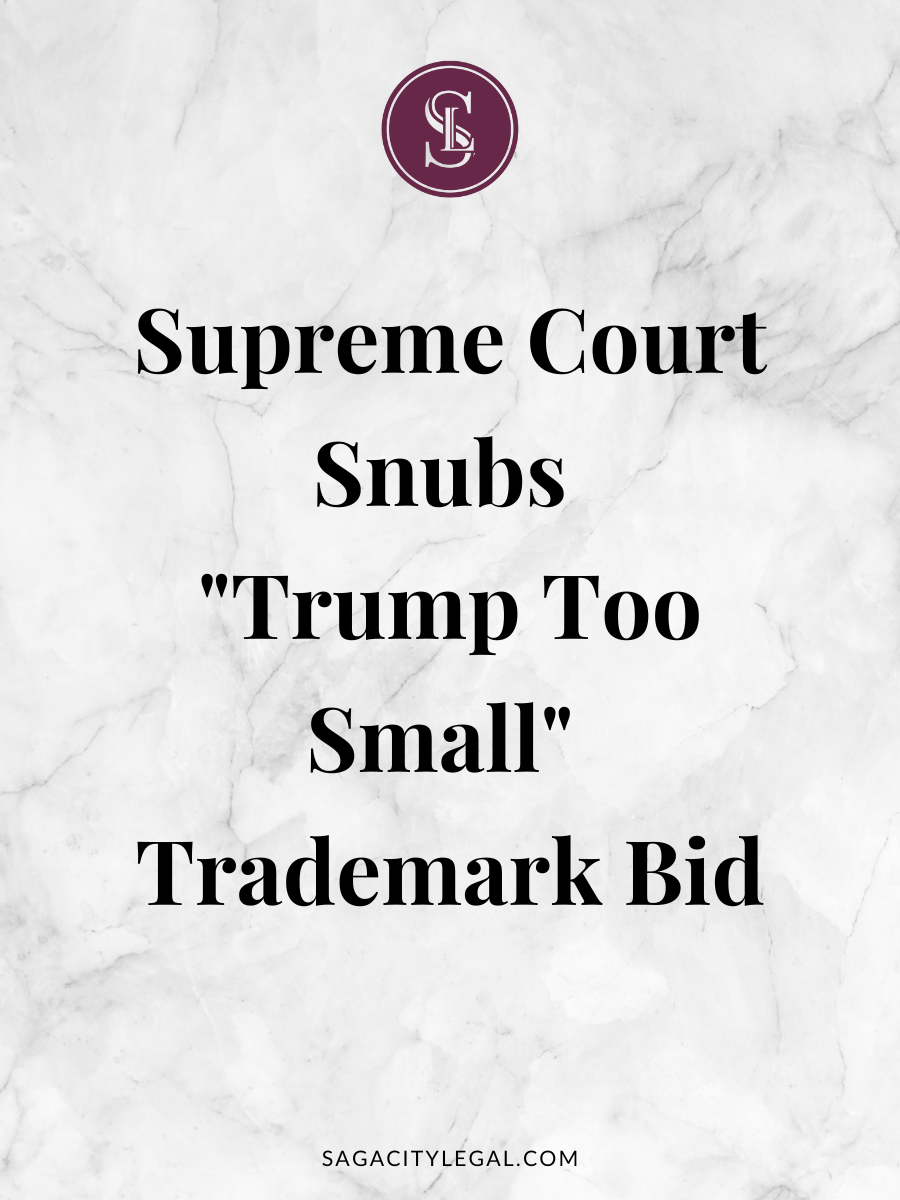
On June 13, 2024, the Supreme Court decided that the Lanham Act’s names clause does not violate the First Amendment.
In their decision, the Supreme Court declined to register the trademark “Trump Too Small,” reinforcing the boundaries of trademark law and free speech.
This ruling has captured significant attention, particularly among those interested in intellectual property rights and political commentary.
The Case Background
For those unfamiliar with the case, let’s rewind a bit.
In 2018, Steve Elster sought to register the expression “TRUMP TOO SMALL” as a trademark for use on shirts.
His intention was clear—using the mark as political commentary.
However, the US Patent and Trademark Office (USPTO) rejected his application, citing two provisions of the Lanham Act:
- Section 2(c) – Prohibits registering a mark that identifies a living individual without their consent.
- Section 2(a) – Prohibits marks that falsely imply a connection with living or deceased individuals.
Elster didn’t take this rejection lightly.
He appealed the decision, arguing that the statutory bars against registration violated his First Amendment rights.
He claimed these provisions were not narrowly crafted to address a compelling government interest.
The Supreme Court’s Decision
The Supreme Court has now ruled that the USPTO did not violate the First Amendment in rejecting Elster’s application.
The Court upheld the federal law prohibiting trademarks that include other people’s names without consent, affirming that it does not violate the Constitution.
Implications for Trademark Law and Free Speech
This decision has broader implications for trademark law and the balance between intellectual property rights and free speech. Here are key takeaways:
- Protection of Personal Names: The ruling underscores the importance of protecting personal names from being used in trademarks without consent. It reinforces Section 2(c) of the Lanham Act, ensuring public figures have control over the commercial use of their names.
- Clarification on Free Speech: The decision clarifies that restrictions on trademark registrations involving personal names do not necessarily violate free speech rights. The Court’s stance suggests that these restrictions serve a legitimate purpose in preventing misuse and confusion.
- Political Commentary: While political commentary is a protected form of free speech, this case demonstrates that such commentary may face limitations when intersecting with trademark law. The Court’s ruling indicates that the Lanham Act’s provisions can coexist with First Amendment rights without infringing upon them.
A Milestone in Trademark Rights
The Supreme Court’s decision is a pivotal moment in the ongoing debate over the intersection of trademark law and free speech.
It reinforces the notion that trademark regulations, particularly those involving personal names, are essential for maintaining order and preventing misuse.
For entrepreneurs, content creators, and anyone interested in intellectual property rights, this ruling serves as a reminder of the complexities involved in trademark registrations.
It’s a delicate balance between protecting individual rights and upholding the principles of free speech.
If you’re navigating the challenging waters of trademark law or seeking to understand how recent rulings may impact your business, staying informed and seeking expert guidance is crucial.
The case of “Trump Too Small” offers valuable insights into the evolving landscape of intellectual property rights.


leave a comment on this post.